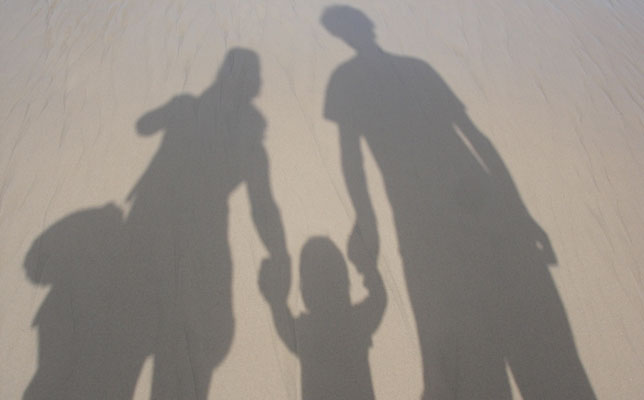This guest post is by Paige Knipfer, an adoptive mother and adoption consultant.
For 29 years, I lived in a blissfully comfortable color-blind bubble of ignorance and denial. I knew racism existed in this country but never around me. Not in my family or my friends. Not in my community.
I was wrong on so many levels.
When we adopted our daughter the first question I was asked by some family members was “What color or race is she?”
I was devastated. I wondered why it mattered. I knew and worried that my child wouldn’t feel a part of the family.
Whenever I talked about my daughter or mentioned she was adopted I would show a photo. Most people were shocked to find that she is white.
When society hears the word “adoption,” they think of a child from another country who is stereotypically black. Even now if we mention she is adopted some people seem shocked.
Recently, we adopted again—a son. We know he isn’t white, but we’re not sure yet what his racial identity is because some of his birth history is still in question.

After we sent photos of him to family and friends, some of them suggested we take a “race test.” One day we will find out what race he is but for now we are content with not knowing.
We notice racial biases so much more because we have an adopted a child who is white and a child who is not.
It’s difficult to go out in public with them. People always want to know our story and will ask questions in the most awkward way.
They will flat out inquire what our son’s race is and then judge us for not knowing. Others will speculate on his race based on his looks.
And still others make awful jokes. They ask how much he and my daughter cost and why our children were ‘given up.’
Here’s a tip: Please stop trying to figure out our family. If you feel the need to say something just tell us we’re beautiful.
My husband often gets the “you’re stupid” look or together we’ll get the “pity” look. Some people assume I cheated on my husband and that we’ve worked through the cheating.
Take my word for it. If I say I’m his mom, I’m his mom.
It’s extremely hurtful to be asked repeatedly who I am at the doctor’s office and assume I must be his aunt.
I think of all the bi-racial families that go out into the world and deal with this on a daily basis.
It’s exhausting. I’m all for educating people on adoption and racial biases but some days I can’t handle the “Are they REAL siblings?” question about our kids.
I know most of the time these comments and questions don’t come from a place of malice or viciousness. I know people simply don’t know what to say or how to ask something.
Our family lives in a community that is majority white. The first time my son got small red bumps a teacher had us take him to the doctor.
She thought he had hand, foot and mouth disease even though he didn’t have a fever or look it at all.
The doctor told us there was nothing wrong with him. The following morning the teacher said she didn’t know how to respond because of his “complexion.”
His “complexion”—e.g. race—doesn’t mean he will display different symptoms of illness. We all get sick. We are all human.
Another thing that surprised me is hair touching. I never knew this was a thing until my son was born.
People seem fascinated with his hair. At times complete strangers will run their fingers through his hair without even asking.
This is disrespectful and a violation of his privacy. My child is not a petting zoo. Please do not touch my children without my permission and honestly don’t ask.
I understand that his hair looks soft and beautiful. I understand that nothing may seem wrong with touching it. But touching someone else’s hair without their consent is demeaning.
I want to be able to teach my son that boundaries matter and to protect him from feeling like an “other” or “less than” a real person by being touched due to his differences.
Color does matter and everyone sees color. Everyone has implicit biases, including me! To learn about your own bias there is a test you can take here.
Knowing your biases can help you. Now that I’m a mom to a non-white child I’m obligated to be his advocate. I’m dedicated to being the person that he knows will always stand up for him when someone hurls a racial insult or slur.
I’m committed to calling out friends and family members for jokes they might think are harmless.
It’s not about being politically correct or raining on people’s parades. It’s about making sure that the world our kids live in is as supportive as it possibly can be.
Paige Knipfer is an adoptive mom of two and an avid traveler (Semester at Sea alumni) who loves to share her adoption experiences. Learn more at Love Grown Adoption Consulting.
Do you have an adoption story to share? Email us any time or find out more about how to share it with our community.
Help us remove the stigma surrounding open adoption. Like us on Facebook.
